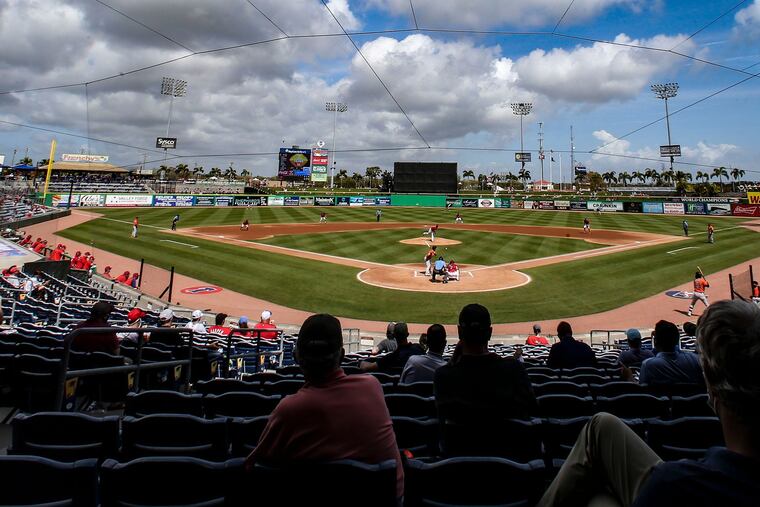MLB lockout: Players make new economic proposals; sides set to meet again Tuesday
If an agreement isn’t reached by the end of next week, spring training will almost certainly be pushed back

A two-hour, in-person meeting Monday between representatives from Major League Baseball and the MLB Players Association produced a glimmer of progress in a work stoppage that has dragged on for nearly eight weeks.
In only the second meeting between the sides since the owners voted for MLB to initiate a lockout on Dec. 2, the players’ union made a broad proposal in which it withdrew a request for age-based free agency to replace the current structure based on major-league service time, according to two sources familiar with the negotiations. The players also scaled back a bid to dramatically alter the revenue-sharing system by distributing less money to small-market teams.
The sides are expected to reconvene Tuesday in New York. It’s not known whether MLB will make a counterproposal or if the players’ concessions will spur enough movement to avoid a delay in the start of spring training. But the pace of the talks, nonexistent last month, is finally picking up with pitchers and catchers due to report to Florida and Arizona in three weeks and the regular season set to open on March 31.
When talks broke down on Dec. 1, MLB informed the players that any changes to the six-year reserve period before free agency or to revenue sharing were nonstarters in reaching a new collective bargaining agreement. The players previously proposed free agency after five years for players who were at least 29½ years old and $100 million less in revenue sharing for small-market teams.
By conceding in those areas — the union agreed to keep free agency at six years and cut revenue-sharing money for small-market clubs by only $30 million — the players believe they demonstrated a willingness to move the negotiations forward.
» READ MORE: Chase Utley says Jimmy Rollins ‘no doubt’ belongs in the Baseball Hall of Fame
But the players also may have more clearly drawn their battle lines, all of which appear to center on achieving higher pay for young players. Central to that goal is expanding the pool of second-year arbitration-eligible players, another change that MLB has said it will not discuss.
In Monday’s meeting, the players rejected the league’s three proposals from last week, notably a formula-based system to determine the salaries of players with two and three years of service time who are eligible for arbitration under the expired CBA. The players also haven’t pulled back their desire to hike the minimum major-league salary from $570,500 per year.
There are other areas in which the sides remain far apart, both of which are related to competitive balance. The players favor a draft lottery for the worst eight teams; MLB wants to limit the lottery to three teams. The players are seeking to raise the luxury-tax threshold to $245 million next year from $210 million; the league wants a $214 million threshold.
MLB will likely need to make concessions in some of those areas to achieve its top priority in the new CBA: expanded playoffs.
If an agreement isn’t reached by the end of next week, spring training will almost certainly be pushed back. The real deadline, though, probably won’t come until late February when the start of the season would be threatened and both sides would stand to lose money.